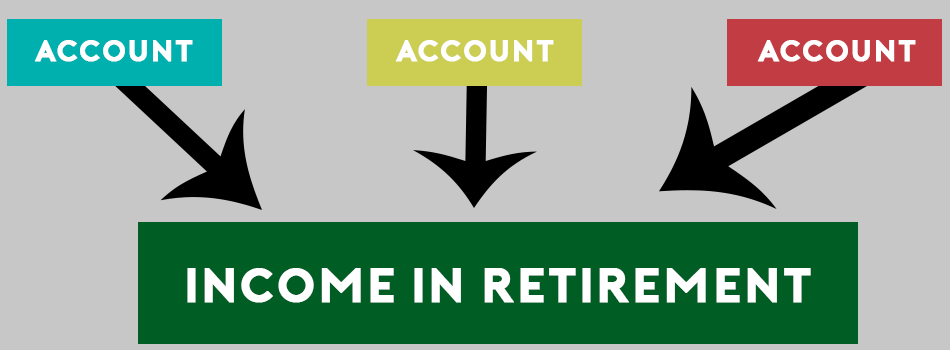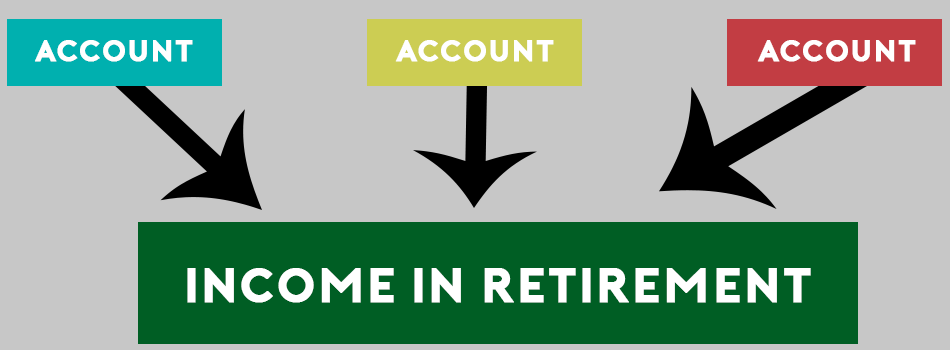Sequence Of Returns Risk: How WHEN You Retire Could Make or Break Your Retirement Portfolio
What is Sequence Risk?
Sequence risk is also called sequence-of-returns risk. It becomes a danger...
By: RL Wealth Partners Mar 10, 2019 6:00:00 AM


This week’s blog is a homage to a book that we’ve been giving to people who come in for a consultation for years, The Power Of Zero by David McNight. If you come in for one of our 365 Retirement Plan consultations, you’ll receive a copy of this book so that you can always reference this material.
For the past few decades, Americans have grown accustomed to investing in tax-deferred plans like 401(k)s and IRAs, but if a person isn’t strategic about where their money is invested during the accumulation phases of their life, they may run into trouble (in the way of taxes) in the retirement years of their life. In this episode of Just Don’t Lose The Money Radio, we’ll discuss three basic types of investment accounts, and how they may affect your retirement income.
Before we get in to each type of account, it is important to know WHY we are discussing this topic today. With a rapidly increasing National Debt (at almost $22 trillion dollars at the time of this blog post) and current income tax rates at near historic lows, there is a massive disconnect between what people think the future of tax rates will look like and what they are doing to prepare for it.
If you think that tax rates could be even ONE PERCENT higher than they are today, what are you doing to insulate yourself from being affected by that?
The first type of investment accounts we’ll discuss are taxable accounts, this includes money in a savings account, CD, money market, stocks/bonds, and even mutual funds. If you receive a 1099 at the end of the year that lets you know how much interest you made in that account (and then have to pay TAXES on that interest), you have a taxable account.
Why are taxable investments important to have in retirement? They provide liquidity in the event of an emergency without having to pay large penalties. Just like everything in life though, there needs to be proper balance - having too much of your money in taxable investments will cause you to be in a higher tax bracket, and could cause your social security benefits to be taxed. Too little in this account, and you may have to dip in to other investment type accounts that will penalize you for accessing the money before you are allowed.
While every person’s situation is different, and that is why we encourage you to reach out for a complimentary 365 Retirement Plan, a general guide is to try to have roughly six months worth of living expenses in accounts of this type.
The second type of investment accounts that you should know about when thinking about retirement planning are the tax deferred accounts - this includes the very popular 401(k) and traditional IRAs. There are two potentially great PROs to putting money in this account:
Distributions from your tax-deferred accounts are treated like regular income in retirement. When you start taking withdrawals, you pay whatever the tax-rate is in the year that you take those distributions. The question becomes, do you think taxes will be HIGHER by the time you start to take distributions? Keep in mind, you may have a number of deductions that help you reduce your overall tax-bracket today (such as mortgage, children, or the very account you are now taking withdrawals from, and IRA.) that might not be able to help you in your retirement income.
Just like the taxable income accounts, money in this account could cause your social security benefits to be taxed. ANOTHER important note to remember is that because this account has to pay taxes, you might be withdrawing more from your account than you thought you would in retirement. For example, if a person realizes they need $100,000 a year in retirement, and the tax-rate for that type of income is 30 percent, that person really needs to withdraw over $142,000 from their retirement account every year. That extra $42,000 can have a DRASTIC effect on your account, especially if you hadn’t planned for it.
So what’s the RIGHT amount that people should have in their 401(k)s?
Again, every person’s situation is different, and if it turns out a person DOES have too much in their tax-deferred accounts, there ARE legal ways to withdraw money from your account without paying taxes on it. If you think you might be in this situation, I would recommend you book time to chat with us and we can figure out your situation together to see if there is anything we can do to help you with your retirement plan.
The third type of investment accounts people should know about when thinking of retirement planning are the tax-”Free” accounts Some people refer to these types of accounts as tax-advantaged or tax-exempt, too.
The most popular example of a tax-free account is the ROTH IRA. Contributions to a Roth IRA are made with after-tax dollars (so, you couldn’t deduct these contributions from taxable income for the years you contribute), but distributions are free from any federal, state, and capital gains taxes. Distributions from this type of account also does not count toward your provisional income, so it won’t have an effect on your social security income.
There is a HUGE catch to the Roth IRA, though. The IRS has a limited to how much you can contribute every year. As of 2019, people under the age of 50 can contribute at MAXIMUM $6,000 in to a Roth IRA. If you are OVER 50, the IRS allows you to play “catch-up” and contribute up to $7,000.
There is another catch - if you make TOO much money, you’ll be capped on the amount you can put in a Roth IRA as well. As of this year, married couples (who file their taxes jointly) who have an adjusted gross income of $193,000 or more, are effected by this phase out. If a couple’s AGI is over $203,000, they are ineligible to contribute to a Roth IRA.
Those are three main types of investment accounts, and how they may affect your income in retirement. If you have any questions or were confused by anything we discussed during this show, feel free to request time to speak with our office by clicking here to book time directly on our calendar.
Have a list of questions around your finances? Thinking about your retirement situation?
Let’s chat.
Use the calendar below to schedule a 15 minute complimentary introductory call directly with either Sam, John, or Ryan. We'll use this time to get to know you and your needs.
Our 365 Retirement Planning process is designed to create a personal relationship with our clients, taking the time to truly understand their unique personal and financial situation. Just as no two people are alike, we believe no two retirement plans should be, either.
Sequence risk is also called sequence-of-returns risk. It becomes a danger...
The forgotten cost in almost every retiree's retirement withdrawal plan... Uncle Sam's (the...
If you are thinking about retirement, or are nearing retirement, its go time. We call this the...